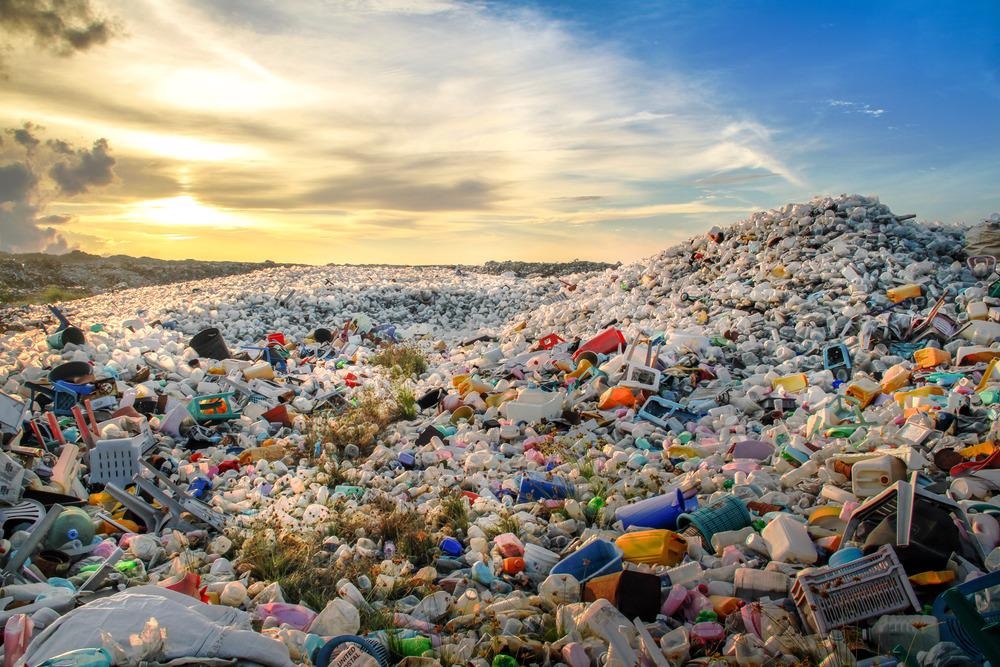
Image Credit: MOHAMED ABDULRAHEEM/Shutterstock.com
The UK government has recently granted £3.1 m ($4.1 m) to a joint project developing advanced chemical recycling for plastics to produce virgin-quality materials from low-quality plastic waste. Recycling Technologies, a growing UK-based advanced recycling company, is in partnership with industry giants Neste and Unilever to create virgin-quality plastic with chemical recycling.
Virgin-Quality Materials from Low-Quality Waste
Despite decades of government and special interest programs, funding, and changing social attitudes towards the environment, plastic products are still consumed and disposed of in vast quantities. Only 30% of plastic waste in Europe is recycled according to the latest figures, and this issue is undoubtedly worse in less developed economies.
A significant factor in this problem is quality – both the quality of plastic waste to be recycled and the quality of recycled plastic products.
Plastic waste can be divided into three broad categories depending on recycling potential and processes.
Positive-value plastic waste can be easily processed and recycled for profit, and items such as large drinks bottles and broken toys fit into this category.
The majority of recycled plastic feedstocks come from this kind of plastic waste and are processed mechanically. However, this type of recycled plastic is not a high enough quality for many applications, as it is typically used in cable ties and piping.
Neutral-value plastic waste cannot easily be processed for profit, but it could be if certain market factors allow it. Smaller drinks bottles and heavier food packaging fit into this category. The majority of waste in this category is exported to countries with cheaper labor and energy costs. However, China's recent move to limit this kind of waste import has significantly restricted the recycling of these kinds of plastic waste items.
Finally, negative-value plastic waste is too expensive to recycle into other products for profit. This includes plastic films, single-use sachets, and pouches predominantly used in food packaging. These items are challenging and too costly to process and recycle using traditional mechanical processing systems.
Whenever plastic waste cannot be recycled for economic, logistical, or technical reasons, it is either incinerated, exported, or sent to landfill sites. Chemical recycling could help to solve this problem by making more plastic waste recyclable.
Can Chemical Recycling for Plastics Solve the Quality Problem?
Chemical recycling – also referred to as advanced recycling – can uniquely recycle low-quality, negative-value plastic waste items into virgin-quality plastic feedstock for new applications.
Traditional recycling methods use mechanical techniques to process and recycle waste plastics. Industrial machines mechanically sort plastics by weight and size, automating the selection of positive-value waste items for further production.
On the other hand, chemical recycling uses various chemical processes to process and sort plastic waste and recycle it into usable virgin-quality material.
There are numerous chemical recycling techniques, but most rely on some combination of distilling waste material in a reactive chemical and heating it without incinerating it.
As consumer attitudes towards the environment become increasingly important for large corporations, many made promises to reduce their environmental impact wherever possible. Some of the world’s largest corporations have now invested in chemical research.
Positive Outlook for Chemical Recycling for Plastics
The UK government grant – made through UK Research and Innovation (UKRI) who direct funds from the UK Department for Business, Energy and Industrial Strategy – is key to speeding up chemical recycling methods and technologies.
The funds will primarily be used by Recycling Technologies to complete their chemical recycling plant in Perthshire, Scotland. Recycling Technologies is already producing a virgin-quality plastic feedstock from recycled materials, referred to as Plaxx oil.
Neste will work alongside Recycling Technologies to ensure its facilities and methods are world-class. Neste has extensive experience in recycling low-quality waste to produce virgin-quality materials and a body of research that Recycling Technologies will access. It is committed to creating virgin-quality materials from waste, and there are several other partnerships with this aim.
Unilever – a global corporation that produces a significant share of the world’s plastic packaging – is joining the established partnership between Recycling Technologies and Unilever to consult on product design and the circular economy.
As well as developing facilities and methods to further chemical recycling for plastics, the grant from UK taxpayers also prioritizes the development and demonstration of added-value applications for virgin-quality plastic made from waste with chemical recycling.
The Circular Economy and Virgin-Quality Materials
The success of this joint project could significantly speed up progress towards a so-called “circular economy”. This is a state of affairs in which nothing is wasted, but all packaging and disposable items are returned to manufacturers for recycling.
Chemical recycling may be the key to unlocking more waste to fit into this economy.
As millions of plastic waste tons continue to be discarded, incinerated, buried, or exported at alarming rates every year, any step forward is certainly welcome.
References and Further Reading
American Chemistry Council (n.d.) What is Advanced Recycling? [Online] American Chemistry Council. Available at: https://plastics.americanchemistry.com/what-is-advanced-recycling/.
Special Chem (2020) Neste & Partners to Chemically Recycle Plastic Packaging into Virgin Quality Products. [Online] Omnexus. Available at: https://omnexus.specialchem.com/news/industry-news/neste-recycle-plastic-packaging-000223099
Thunman, H. et al. (2019) Circular Use of Plastics-Transformation of Existing Petrochemical Clusters Into Thermochemical Recycling Plants with 100% Plastics Recovery. [Online] Sustainable Materials and Technologies. https://doi.org/10.1016/j.susmat.2019.e00124
Disclaimer: The views expressed here are those of the author expressed in their private capacity and do not necessarily represent the views of AZoM.com Limited T/A AZoNetwork the owner and operator of this website. This disclaimer forms part of the Terms and conditions of use of this website.